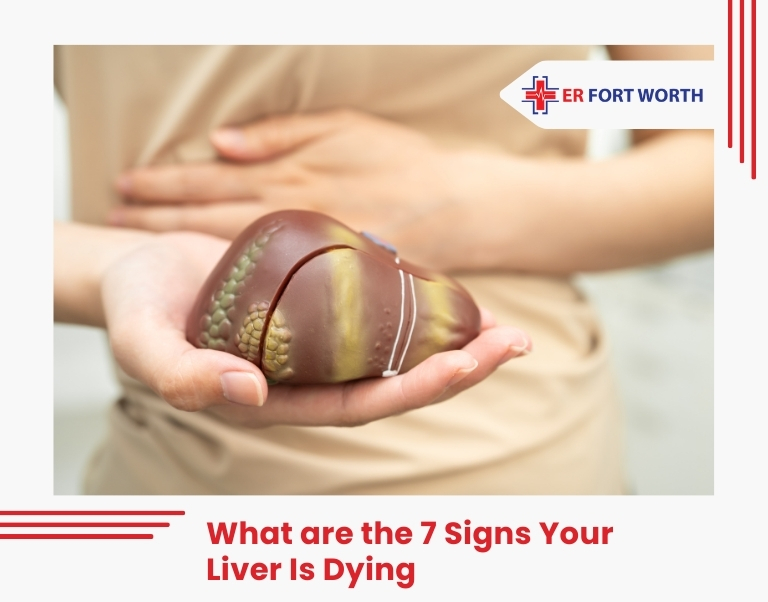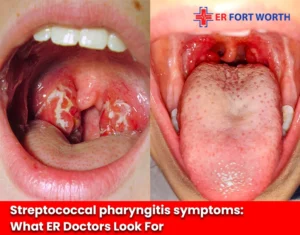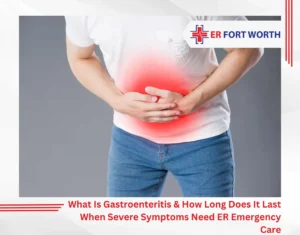Your liver is a vital organ that helps clean your blood, store energy, and break down food. When it’s damaged or failing, it can be serious. Liver failure happens when the liver can’t work properly anymore, often due to things like alcohol use, viruses, or fatty liver disease. But catching it early can make a big difference. We are explaining 7 signs your liver is dying.
Important note: This article is for informational purposes only and should not be considered medical advice. If you think your liver is in trouble, visit your nearest emergency room. Symptoms can vary, and only a qualified professional can provide a proper diagnosis.
What are the 7 Signs Your Liver Is Dying
1. Yellowing of the Skin and Eyes (Jaundice)
One of the first signs is when your skin or the whites of your eyes turn yellow. This happens because your liver can’t process bilirubin, a yellow substance from old blood cells. If you notice this, it could mean your liver is struggling.
2. Feeling Very Tired and Weak (Fatigue)
If you’re always tired, even after rest, it might be your liver. The liver helps make energy, and when it’s failing, toxins build up, making you feel weak and sleepy all the time.
3. Swelling in the Belly or Legs (Ascites or Edema)
Your belly might swell up from fluid buildup, called ascites. Or your legs and ankles could swell too. This is because the liver isn’t making enough proteins to keep fluid in your blood vessels.
4. Nausea, Vomiting, or Loss of Appetite
Feeling sick to your stomach, throwing up, or not wanting to eat? Liver problems can mess with digestion, leading to these issues. You might also lose weight without trying.
5. Confusion or Changes in Thinking (Hepatic Encephalopathy)
Toxins can reach your brain, causing confusion, forgetfulness, or even trouble sleeping. In bad cases, it leads to personality changes or tremors.
6. Easy Bruising or Bleeding
Your liver makes stuff to help blood clot. When it’s failing, you might bruise easily, bleed from your nose or gums, or see blood in your stool.
7. Itchy Skin Without a Rash
Intense itching, especially at night, can happen from bile salts building up under your skin. It’s often one of the annoying early signs.
What to Do If You Notice These Signs
Don’t wait, get checked by a doctor. Tests like blood work or scans can spot issues early. Treatments like meds, lifestyle changes, or transplants have improved outcomes for many.
To keep your liver healthy, eat well, limit alcohol, exercise, and avoid risky behaviors. Stay informed and take care of your body.
What is acute liver failure?
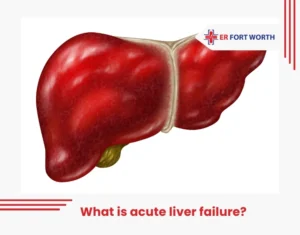
Acute liver failure is a rare but life-threatening condition where the liver suddenly loses its ability to function properly, often within days to weeks, in someone without prior liver disease. It can be caused by factors like acetaminophen overdose, viral infections (such as hepatitis A or B), toxins, or autoimmune diseases.
Symptoms include jaundice, confusion, fatigue, and abdominal pain, and it requires immediate medical attention, potentially including a liver transplant.
What is chronic liver failure?
Chronic liver failure develops gradually over months or years, typically alongside cirrhosis, where scar tissue replaces healthy liver tissue, impairing function. Common causes include long-term alcohol use, viral hepatitis, fatty liver disease, or autoimmune conditions.
It progresses slowly, and symptoms like fatigue, swelling, and jaundice may not appear until advanced stages. Management focuses on treating the underlying cause and preventing complications.
How Liver Function Tests Help?
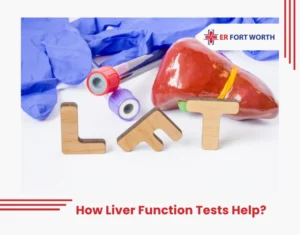
Liver function tests (LFTs) are blood tests that measure enzymes (like ALT and AST), proteins (albumin), bilirubin, and clotting factors (prothrombin time) to assess liver health. Abnormal levels can indicate damage or failure, helping detect inflammation, impaired function, or specific issues like cholestasis. While not diagnostic alone, they guide further tests like imaging or biopsy for confirmation.
Can Liver Damage Be Reversed?
Yes, liver damage can often be reversed in early stages like inflammation or fibrosis through lifestyle changes, treating the cause (e.g., stopping alcohol use), and medical interventions. However, advanced cirrhosis is not fully reversible, though progression can be slowed or halted to prevent failure. The liver’s regenerative ability is key, but outcomes depend on timely intervention.
6 Essential Tips to Protect Your Liver
- Maintain a healthy weight through a balanced diet and exercise to prevent fatty liver disease.
- Limit alcohol intake to avoid toxic damage.
- Get vaccinated against hepatitis A and B.
- Avoid toxins by using protective gear with chemicals and washing your hands frequently.
- Eat liver-friendly foods like coffee, fruits, vegetables, and fiber-rich options.
- Stay hydrated and monitor medications to prevent overload.
Does liver failure cause different symptoms for a woman or a man?
Liver failure symptoms are generally similar across genders, but hormonal imbalances can lead to differences: women may experience irregular periods or infertility, while men might have shrunken testicles or enlarged breast tissue (gynecomastia).
Women with alcohol-related liver disease may face higher mortality risks than men. Overall, core symptoms like fatigue and jaundice remain consistent.
What does liver failure feel like?
Liver failure often starts with vague feelings like fatigue, weakness, nausea, or abdominal pain. As it progresses, you may experience jaundice (yellowing skin/eyes), swelling in the abdomen or legs, confusion (brain fog), easy bruising, and intense itching. It can feel like constant tiredness, bloating, or mental disorientation, worsening over time.
How is liver failure diagnosed?
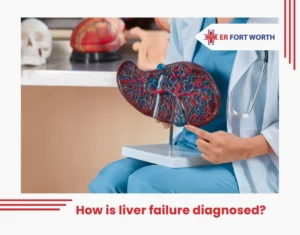
Diagnosis involves blood tests (liver function tests) to check enzymes, bilirubin, and clotting factors; imaging like ultrasound, CT, or MRI to visualize damage; and sometimes a biopsy for confirmation. Physical exams and medical history help identify causes, with prothrombin time often key for acute cases.

